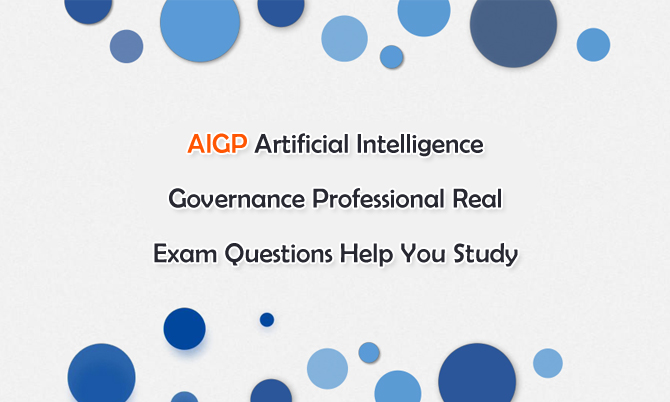The Artificial Intelligence Governance Professional (AIGP) certification is an esteemed and comprehensive program that has been meticulously designed and created by the International Association of Privacy Professionals (IAPP). The main purpose of this certification is to thoroughly equip professionals with the necessary skills and an in-depth understanding needed to manage AI systems in an ethical and safe manner. The AIGP certification is a critical component in the larger landscape of AI management, as it provides the tools and guidelines that are essential for ensuring that AI technologies are developed, deployed, and maintained responsibly. This certification not only validates the professional's expertise in AI governance but also contributes to their career growth by making them highly desirable in the technology industry.

The AIGP credential offers numerous benefits for professionals across diverse sectors:
Comprehensive AI Knowledge: Build a solid foundation in AI systems, their applications, and the principles of responsible AI usage. This knowledge is essential as AI continues to transform various fields.
Legal and Ethical Expertise: Understand how current and emerging laws apply to AI. The AIGP certification demonstrates your ability to navigate major frameworks and govern AI responsibly, ensuring legal compliance and ethical integrity.
AI Lifecycle and Risk Management: Learn about the AI lifecycle and the context of managing AI risks. The certification equips you to implement responsible AI governance throughout the development and deployment stages.
Awareness of AI Challenges: Stay informed about potential concerns and debated issues in AI governance. This awareness is crucial for addressing and mitigating AI-related risks effectively.
The AIGP certification by IAPP is designed for the emerging AI governance profession. It prepares professionals to integrate responsible AI practices into every stage of AI system development. The certification fosters a community of credentialed AI governance experts who share resources and expand their collective knowledge.
The AIGP certification is ideal for professionals involved in:
AI compliance
Risk management
Legal and governance
Data science
AI project management
Model operations
Social sciences
Trust professions
The AIGP exam is a comprehensive assessment of an individual’s understanding and capabilities in AI governance. Key details include:
Duration and Format: The exam lasts three hours, including a 15-minute optional break. It consists of 100 multiple-choice questions, with approximately 30% related to real-world case studies.
Scoring: Each question has one correct answer. The exam includes 85 scored and 15 unscored questions, with a set cut score determined by psychometric analysis. A score of 300 out of 500 is required to pass.
Preparation: Candidates must be familiar with the body of knowledge for the exam. Utilizing study materials and resources is essential for thorough preparation.
The certification exam costs USD 649 for IAPP members and USD 799 for non-members. Retake exams are priced at USD 475 for members and USD 625 for non-members. Individuals holding another IAPP certification receive a discounted retake fee. Non-members will also receive a complimentary Certification Maintenance Fee added to their exam order upon passing.
The AIGP real exam questions from Testpassport are designed to evaluate a candidate's understanding of AI governance. They cover a wide range of topics, including AI lifecycle, risk management, legal and ethical considerations, and more. The questions are based on real-world case studies, emphasizing the application of knowledge in practical scenarios. Therefore, studying these AIGP questions can provide candidates with a comprehensive understanding of the subject matter and prepare them for the exam effectively.
The AIGP certification is a crucial step for professionals aiming to excel in AI governance. By ensuring a deep understanding of ethical AI practices and compliance with regulatory standards, the AIGP credential not only enhances individual careers but also contributes to the broader goal of developing trustworthy and responsible AI systems.